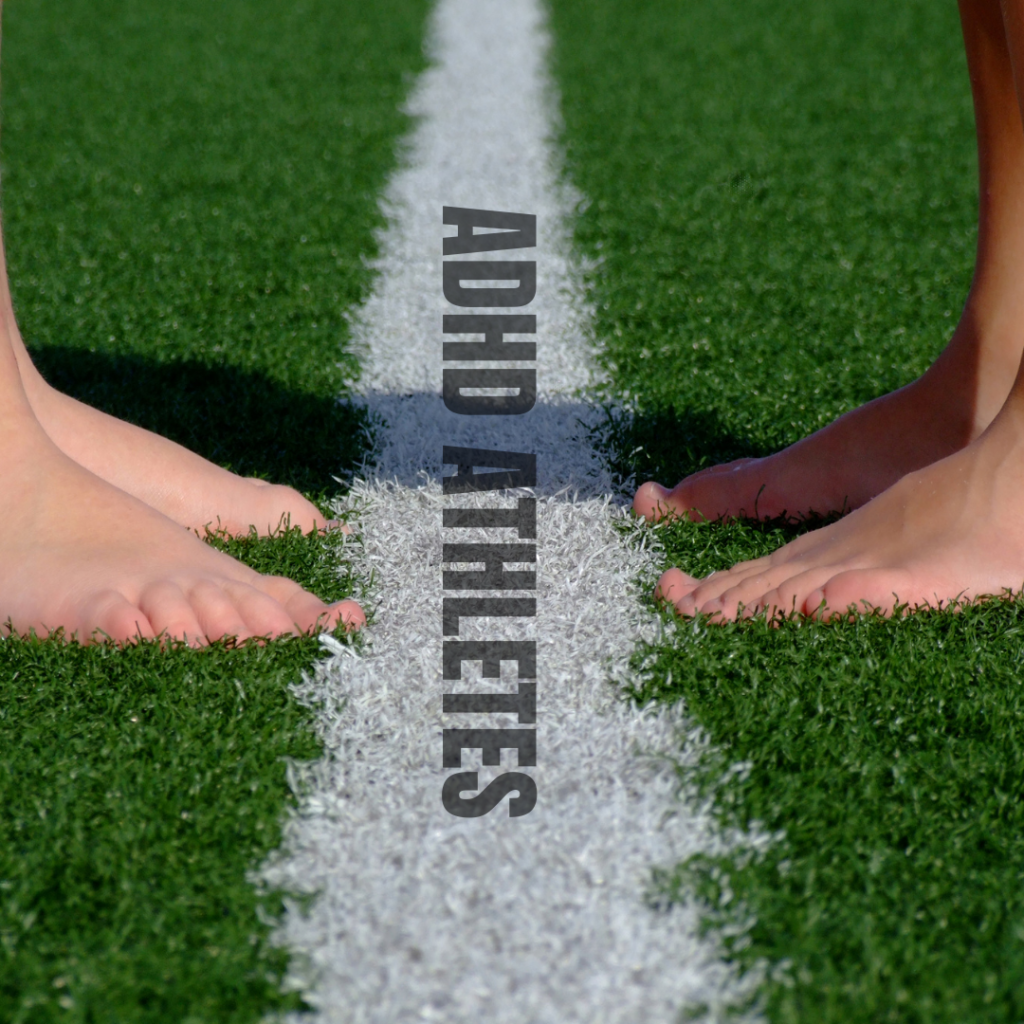An estimated 6.1 million American children ages 2-17 years old had ever received a diagnosis of ADHD. This representing 9.4% of this total age-group nationwide as reported by the Journal of Clinical Child and Adolescent Psychology, 2016.
Journal of Clinical Child and Adolescent psychology 2018
ADHD in sports is something that I think should be talked about more. There are very significant things about an ADHD brain that needs attention on the playing field just as much as in the classroom or other areas.
Most people understand ADHD’s main challenges as difficulty focusing, unable to pay attention, organizational issues, and is extremely hyperactive. However, many children (and adults) also struggle to regulate their emotions. This can be both bouts of anger/frustration or being extremely happy and excited. This tends to be concerning when big emotions do not match the situation or linger for extended amounts of time.
I want to highlight this specific area because emotional struggles are usually one of the main reasons any parent brings in their athletes to see me. It is very common to see athletes get mad, frustrated, or cry during games. Sports are emotional, they want to win, there are expectations and pressures that can affect anyone but the environment isn’t always so tolerant of big emotions or distracting behaviors. This can make it extremely challenging for an athlete that has ADHD. I often see parents and coaches overlook the diagnosis and just relate it to poor sportsmanship.
ADHD and Our Emotions.
ADHD impacts certain regions of the brain and their functions. One of those is the Limbic system that regulates our emotions and attention. When something like a small mistake happens they can be flooded with emotions due to the impaired ability to recognize their own feelings and adjust them to the situation. They have less ability to react to their own emotions using reasoning and processing. Non-ADHD athletes have a bigger window to look at the situation reason and respond accordingly. This is usually why we hear people say they go from 0 to 100 real quick!
Another notable thing about ADHD and the athlete is they tend to have trouble with working memory and needing instant gratification. This makes it hard to keep in mind the big picture of things when struggling. Since the ADHD brain has a dopamine deficiency, long-term goals of success, rewards, or one day mastering this tough skill are not enough to stop the emotional flood that overwhelms them.
This can also cause an athlete to:
- Give up too quickly on a skill, drill, or sport.
- Be reluctant or procrastinate on something they should be doing.
- Throw things, say abrupt things in the moment, cry, or yell .
- Have over aggressive playing styles, or fearlessness.

Some research indicates that 70-80% of children with ADHD have atypical emotion regulation. About 30% of kids had severe anger and tantrum problems, often along with elevated moodiness and anxiety. Another 40% were very active, energetic, risk-taking, and had a more positive mood, but were also prone to anger outbursts.
Joel Nigg Ph.D.
Helping Kids through ADHD
Here are some other areas an ADHD athlete can struggle.
- Worry too much or too long about small mistakes.
- Have more negative, repetitive and anxious thoughts around their sport or skills.
- Have trouble calming down when they’re annoyed or angry.
- More sensitive or take offense to criticism or yelling by coaches.
- Feel excessive urgency to get something they want or to master a skill or get out of a slump.
- Feel bored or distracted at practice when things are too repetitive or slow paced.
- Seeming less mature than other athletes their age.
- Closely related to the problems of emotional regulation, about 1/3 of children with ADHD experience symptoms of anxiety.
Remember ADHD can look different and present in different ways. Some athletes I work with do not show the same behaviors in school or at home as they do in their sport.
Cortnee White, M.ed, Mental Performance Specialist
The Importance of Supporting the ADHD Athlete.
It is important for me to address this because sports are a wonderful place for those who have ADHD and children are more likely to join due to the positive activating effects. Sports can offer the ADHD athlete a place to excel and learn ways to regulate emotions and stimulate the brain’s needs. It is estimated that eight to ten percent of all professional athletes have the diagnosis. Some research presents that ADHD may be more common in elite athletes than in the general population.

However, many quit or have bad experiences due to the lack of knowledge surrounding what is happening inside the athlete’s brain and what they need in order to succeed. I have heard too many stories of athletes being kicked off teams or told their behaviors will not be tolerated. Some still dismiss the disorder and relate symptoms to poor parenting or an athlete being too emotional or uncoachable.
These athletes tend to struggle in many areas and can be seen as disruptions at home, in school, and now in their sport. Research indicates that those with the diagnosis feel intense remorse more than others and up to 99% of teens and adults are more sensitive than usual to rejection. Nearly 1 in 3 say it’s the hardest part of living with ADHD. Playing sports can be an escape from the challenges they face at school and home, it can also teach them to manage the things they battle with. Without the proper tools and support their love of the game is just another area, they feel rejected, dismissed, and not good enough.

As teachers, coaches are on the front lines of these behaviors sometimes more than parents and can have a huge impact on supporting the struggles they may have. These athletes are not “uncoachable” they just need a different type of coaching.
Working with a sports therapist not only allows the athlete to learn critical skills in life and sport but is also a great tool for communication within the athlete’s support system. ADHD is still very misunderstood and I am so happy to be able to help parents and coaches navigate this and support the gifts of the ADHD athlete.
References
- https://www.understood.org/en/learning-thinking-differences/child-learning-disabilities/add-adhd/adhd-and-feelings-of-remorse-what-you-need-to-know
- https://www.espn.com/espnw/voices/story/_/id/17602540/bravo-simone-biles-taking-stand-adhd-stigma
- https://www.additudemag.com/adhd-emotional-regulation-video/

Have questions about the ADHD athlete?
Send me an email.



Leave a comment